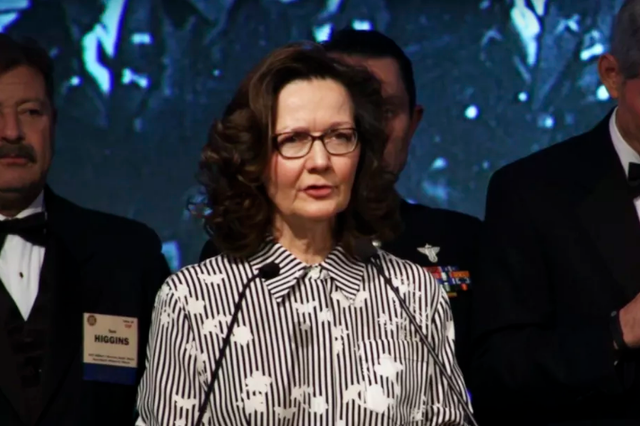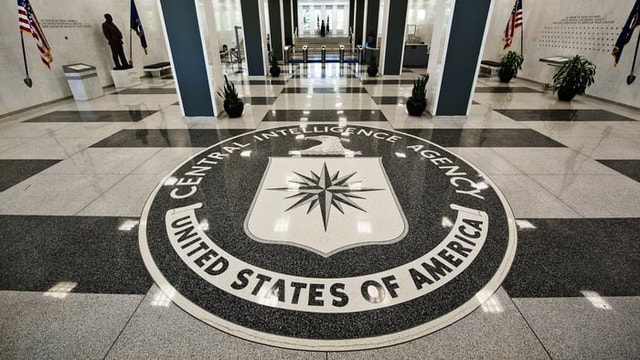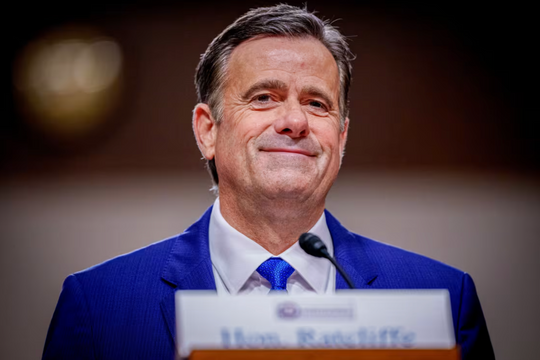Portrait of the first "steel rose" nominated to lead the CIA
A hard-line agent, Gina Haspel was appointed by President Donald Trump as CIA Director and will become the first woman to lead the top intelligence agency after the US Senate's approval process.
Tough Agent
 |
| Ms. Gina Haspel. Photo: CBS |
President Donald Trump announced on March 13 that he had nominated Deputy Director of the Central Intelligence Agency (CIA) Gina Haspel to be the Director of the CIA, after the White House boss fired Secretary of State Rex Tillerson and appointed CIA Director Mike Pompeo to this position. If approved by the US Congress, Ms. Gina Haspel will be the first woman to hold the position of CIA director in the history of this top intelligence agency.
In a statement released following President Trump's nomination announcement,RT“I am honored that President Trump has given me the opportunity to serve as Director of the Central Intelligence Agency,” Ms. Haspel said. “If confirmed, I look forward to providing President Trump with the outstanding intelligence support he has come to expect during his first year in office.”
According toCBSGina Haspel, born on October 1, 1956, is well-known in the intelligence community and is a hardliner. She began working at the CIA in 1985, spending most of her time undercover, and was nominated by Trump as Deputy Director of the CIA in February 2017. However, the decision to appoint Ms. Haspel was controversial because she had managed a "black" prison that held American terrorist criminals.
As a veteran US intelligence officer, Ms. Haspel has been responsible for the daily management of the CIA in recent months while Mr. Pompeo has spent much of his time working at the White House. During her 30 years at the CIA, Ms. Haspel has held many senior leadership positions at important agencies such as the National Clandestine Service or the Counterterrorism Center. Ms. Haspel has been awarded prestigious titles, including the Presidential Rank Award - the highest award for individuals working in the federal civil service.
Gina Haspel was one of the top US intelligence officers involved in the harsh interrogation program under former President George W. Bush. Human rights organizations have strongly condemned the program because they believe that US intelligence used inhumane torture methods on prisoners.
Ms. Haspel has extensive experience working at US bases abroad and once ran a US black prison in Thailand - where al-Qaeda terrorist suspects were held in 2002. This was also the CIA's first secret prison abroad and is suspected of applying many forms of torture to prisoners, including "waterboarding" - a torture method that involves covering the suspect's face with a cloth and continuously pouring water to make the suspect feel like he is about to suffocate.
Controversial role
 |
| CIA headquarters. Photo: Rex |
The TimesMs. Haspel reportedly played a direct role in a CIA program that allowed captured terrorists to be transferred to foreign governments and held in secret facilities. According toVoxMs. Haspel remains a controversial figure in the US government because of her role in the CIA's torture program.
According toNew YorkerDuring Haspel’s time in charge of the Thai prison, one of the terror suspects detained was Abu Zubaydah, who was said to have been “tortured so severely that he appeared to have died.” CIA agents allegedly “waterboarded” Zubaydah 83 times, even throwing him against a wall multiple times. Another suspect, Abd al Rahim al-Nashiri, was also “waterboarded” in 2002 and is being held at the notorious Guantanamo Bay prison in Cuba.
The CIA is also suspected of attempting to delete videos of torture of suspects inside prisons. According to Vox, 92 videotapes remained until the CIA removed them in 2005, and Ms. Haspel is believed to have been involved in the decision to delete them. The US Justice Department investigated the deletion of CIA torture videos, but ultimately did not file a lawsuit. In 2009, former President Barack Obama ordered the closure of CIA black sites and banned the use of methods such as waterboarding to interrogate suspects.
Although the CIA's black sites were closed, Ms. Haspel's return as Deputy Director of the CIA last year and as Director of the CIA in the coming time has raised many questions about the possibility of the CIA's controversial program being revived. It is worth noting that current President Donald Trump has also stated that he supports the re-application of interrogation methods for terrorist suspects. According toCNNIn the upcoming Senate confirmation hearing before her official appointment to the CIA leadership position, Ms. Haspel may have to testify about her role in the alleged torture of prisoners in Thailand.
Although President Trump has heaped praise on Ms. Haspel when nominating her to be CIA Director, she is likely to face opposition from all Democrats and some Republicans in the Senate during the nomination vote, according toReuters.
“The torture of detainees in US prisons over the past decade is one of the darkest chapters in American history. Ms. Haspel must provide an explanation of the nature and extent of her involvement in the CIA torture program during the confirmation process,” Senator John McCain, Chairman of the US Senate Armed Services Committee, stressed.








